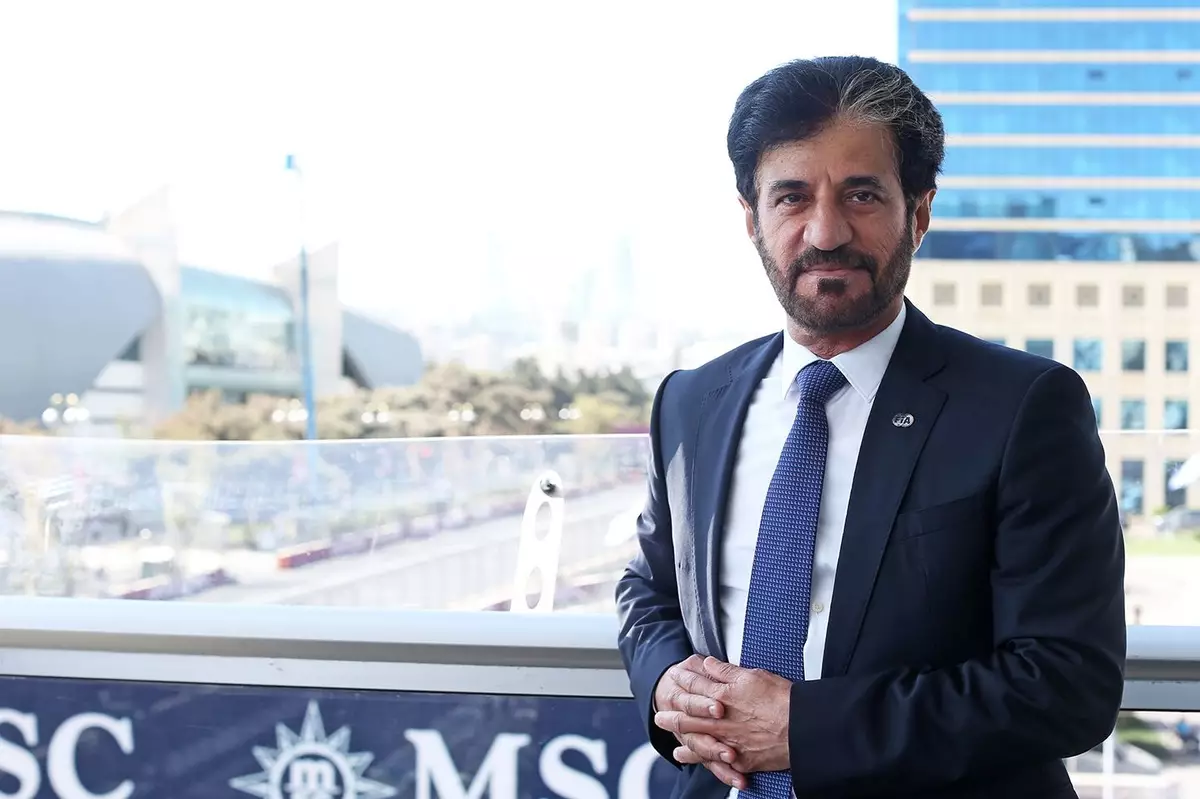Mohammed Ben Sulayem, the president of the Fédération Internationale de l’Automobile (FIA), is no stranger to controversy. Since stepping into the role in late 2021, his tenure has been characterized by a complex relationship with the British media, which he claims does not always treat him fairly. This sentiment was brought to light recently when prominent Formula 1 designer Adrian Newey discussed the unjust treatment received by both Max Verstappen and Sebastian Vettel, suggesting that such demonization is detrimental to the sport. These statements struck a chord with Ben Sulayem, who believes that the media often misrepresents figures in motorsport—himself included.
Ben Sulayem has not held back in voicing his frustrations regarding the British media landscape. He argues that instead of fostering constructive dialogue around motorsport, certain media outlets engage in sensationalism that can overshadow the sport’s achievements and milestones. His assertion that the media “convicted” him without due process illustrates his feeling of besiegement in a landscape that should ideally be fostering transparency and communication. Ben Sulayem highlights the transactional nature of media coverage; for them, selling stories is a priority, even if it means displacing the reality of the FIA’s work and intentions.
He embraces a certain stoicism in face of this onslaught, asserting that the media’s lack of influence over the FIA renders their criticisms largely ineffective. This indicates a long-term perspective, where he seeks to define his legacy through the governance and improvement of the FIA rather than through fleeting media narratives. However, this stoic approach may pose a risk of alienating important stakeholders within the media industry, who could influence public perception and support.
Assessing whether Ben Sulayem is truly a champion of change or merely a reactionary leader hinges on evaluating his accomplishments during his presidency. He claims that the FIA is in a stronger position compared to the state in which he found it. Improvements in operational efficiency and a renewed focus on responding to member needs point towards a proactive leadership style. Yet, there remains skepticism about whether these changes are substantial or simply cosmetic improvements.
His assertion that the FIA is healthier and more robust raises the question of sustainability. The strides made during his presidency must continue to foster inclusivity and provide tangible benefits to motorsport at large. It is especially critical as the FIA governs a broad swath of racing disciplines beyond Formula 1, thereby necessitating a holistic approach to governance.
Relationship with Member Clubs: The Foundation of Leadership
One aspect of Ben Sulayem’s governance that stands out is his emphasis on working collaboratively with member clubs. He underscores that these clubs are the lifeblood of the FIA; their support is vital for maintaining legitimacy and effectiveness. Ben Sulayem’s tactical approach of fostering relationships with these foundations reflects an understanding of the intricate dynamics that govern motorsport organizations. His determination to prioritize these relationships over media interactions suggests a strategy that aligns with his vision of a democratic and member-driven organization.
However, this perspective raises critical questions about the balance between the media’s role in shaping public discourse and the need for FIA leadership to engage with audiences beyond its member clubs. If Ben Sulayem seeks reelection, building bridges with media stakeholders could be as essential as maintaining strong ties with member clubs.
Looking ahead, Ben Sulayem expresses a clear desire to complete his manifesto, indicating a commitment to transparent goals and accountability. His openness to challenge, should anyone wish to run against him, is a bold stance that reflects his confidence in direct democratic principles. Yet, the call for competition could be perceived in various ways: as a rallying point for transparency or as a potential distraction from his ongoing responsibilities. His ability to translate his aspirations into operational realities will ultimately define the efficacy of his presidency.
Mohammed Ben Sulayem occupies a pivotal role as FIA president, balancing the pressures from the media, member clubs, and the broader motorsport community. His criticisms of the media, assertions of organizational strength, and commitment to member engagement illustrate a multifaceted approach that seeks to redefine the relationship between the FIA and its stakeholders. Whether he can successfully navigate these waters will significantly shape the future landscape of motorsport governance and media relations. As he approaches potential re-election, this balancing act will be at the forefront of discussions around trust, transparency, and leadership within the FIA.


Leave a Reply